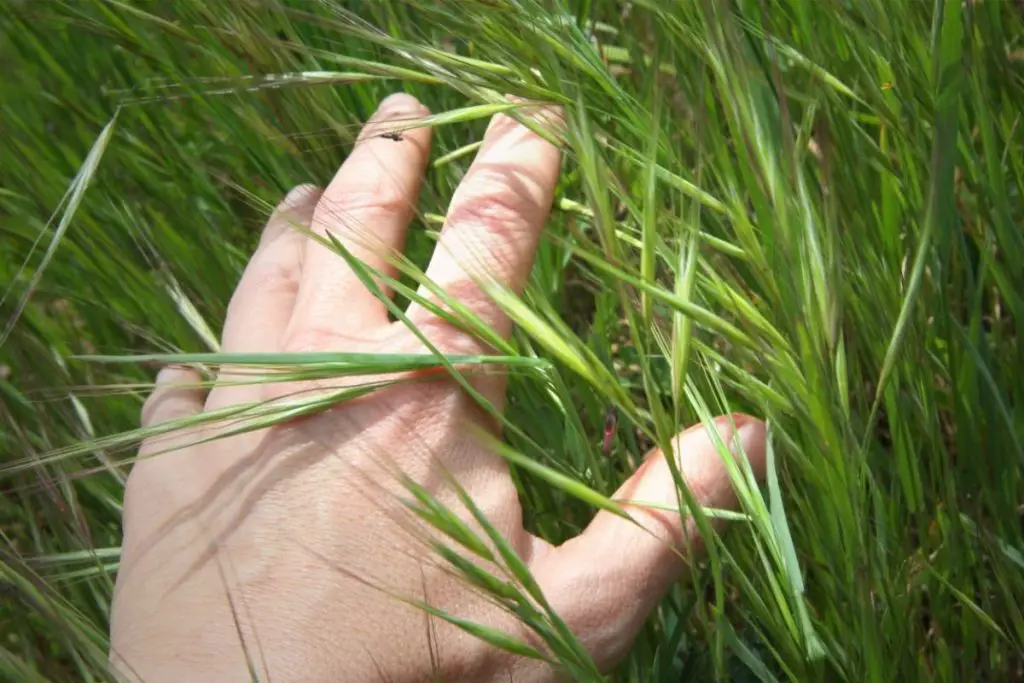We live in a fast-paced world that is busy, chaotic, and often, very challenging. As we are dashing from place to place, person to person, and commitment to commitment, it is easy to lose sight of our true selves, and to start to feel as though we are living our daily lives on autopilot.
When you are out of touch with your body, your mind, and your senses, you will start to feel more anxious and stressed. Depression levels can increase, and you may start to feel disconnected from the world around you.
Getting back in touch with your senses, and learning how to heighten them, allows you to achieve your full potential, and is a valuable exercise with a number of advantages for your overall health, happiness, and wellbeing.
If this sounds like the path you want to take, then read on to discover how heightening your senses can help you, and the best tips, tricks, and techniques to help you achieve this.
What Are Our Five Senses?
Our senses are responsible for helping us to explore and interact with the world around us by sending key signals and information to our brains. There are five in total: sight, touch, hearing, smell, and taste.
- Sight is a complicated process that sees light reflected from objects and then sent through the cornea and lens of the eye to create an image that we can see.
- Touch allows us to explore pain, pressure, temperature, and vibration
- Hearing is a process that occurs when sound is channeled through the ear, and the sound waves are created to reach our eardrum, causing the tissue to vibrate and us to hear sound.
- Smell is a process that occurs when specific nerve endings transmit a series of scents into our brain.
- Taste relies on taste buds to allow us to receive signals, determining whether something is sweet, sour, salty, savory, or bitter.

Why Is It Important To Heighten Your Senses?
Boosting and heightening your senses allows you to increase your powers of observation – and this is a skill that is useful in every aspect of daily life.
Some of the main advantages that you can enjoy when you focus on heightening your senses include:
Live In The Moment
When you are using all five of your senses to their full potential, you can take the chance to really practice and enjoy living in the moment. This means appreciating things just as they are, and just as they are happening in front of you, rather than worrying about the future, or dwelling on the past.
Living in the moment is a key element of the practice of mindfulness, and this has been proven to help reduce your levels of stress and anxiety in your everyday life, as well as help you to experience higher levels of joy, pleasure, and gratitude which lead to greater satisfaction.
These elements can help boost your health, as you are not spending time and energy worrying about things that have not yet happened, or that you cannot control.
Notice The Little Things
Heightening your senses also allows you to notice the little things in life, and these small things can soon add up to weave into the rich tapestry of your overall life.
Over time, you will start to notice these smaller things more naturally, and this will add moments and memories that you may have otherwise missed out on.
Seize Opportunities
When you are using all of your senses to their fullest potential, you will notice little details that may have otherwise slipped beneath your radar.
From a potential new contact to a chance to showcase your skills, paying closer attention to your senses will, in turn, help you to pay closer attention to the world around you – and you never know where this could lead.
Stay Safe
Perhaps one of the most important benefits that you can enjoy from heightened senses is that it can increase your chances of keeping yourself safe.
When you are more aware of the world, you are more likely to pick up on subtle signs and signals that something is wrong – and this has the potential to save your life in the most extreme situations.
How Can You Heighten Your Senses?
There are a number of techniques that you can use to heighten your senses, and we will explore some of these below:

Olfactory Training To Boost Smell
One of the most popular options and techniques for boosting your sense of smell is olfactory training – and this can be carried out in the comfort and convenience of your own home.
The technique is designed to facilitate the creation of new neural pathways across your system and is focused on helping you to become more mindful of the different smells around you in everyday life.
It is a good idea to keep a specific journal of smells that you encounter and record as many details as you are able. This will help you to notice smells more easily, and discern different things about them.
You can also practice this by focusing on sniffing a particularly strong smell frequently throughout the day – scents such as garlic or onion are particularly useful for this, as are essential oils such as peppermint, rose, lavender, grapefruit, and menthol.
Another option is to head outside to the countryside, and take in the fresh air, inhaling scents such as flowers, grass, soils, and leaves. Don’t forget to sniff quickly and move on, rather than inhaling deeply each time – the latter can result in scent fatigue.
Try inhaling and sniffing with your eyes closed – this forces your body to focus purely on your smell, and reduces the number of external stimuli that your brain needs to work through.
Practice closing your eyes and asking someone to present you with different scents and substances, while you try to identify them. Start with things that are easy to distinguish, such as fruits and essential oils, and then move on to things that are a little trickier, such as lemons and limes.

Focus On Your Diet To Improve Your Vision
We have all heard the claim that eating carrots helps you to see in the dark, but your diet can have a significant impact on your vision, particularly when it comes to antioxidants.
According to health experts, your diet can play a key role in improving ocular health, and so you should focus on including plenty of foods that are rich in antioxidants in your diet, including:
- Vegetables, particularly carrots, avocados, sweet potatoes, and spinach
- Fruits such as cherries, pears, strawberries, and oranges
- Spices such as oregano, basil, parsley, cumin, and cinnamon
- Nuts, including almonds, cashews, walnuts, and pistachios
- Herbs – oregano, peppermint, sage, and thyme are particularly useful
You can also boost your consumption of antioxidants through drinks, especially tomato juice, apple juice, and cider. In some cases, a dulled or reduced sense of smell and taste can also be the result of a zinc deficiency, and this can be addressed through supplements, or by increasing zinc-rich foods such as mushrooms, brown rice, beef, pumpkin seeds, and almonds.
Try to reduce the amount of salt and sugar that you consume – these can dull your sense of taste, and make it trickier to taste and enjoy more delicate flavors in your food. It can be a shock when you first cut down on salt and sugar, but after a few weeks, you will notice that food tastes more complex and rich.
Focus on eating real, homemade food, rather than processed options, as these tend to be packed with sugar, salt, preservatives, and additives that can dull your taste buds, and make sure that your diet is varied and exciting, with a range of colors and textures.
Quit Smoking To Improve Taste, Smell, And Vision
We all know that smoking is bad for your health, but it can also have a detrimental impact on our five senses, especially vision, smell, and taste. Regular smoking reduces the blood supply to the taste buds, and this can cause your taste buds to become dull and tired.
In addition, smoking reduces the oxygen received by the cochlea, and this can cause hearing to become less sharp. Your eyesight may also deteriorate as a result of the increased risk of serious eye conditions, such as cataracts, that can come from long-term smoking.
By quitting smoking, you are not only improving your overall health and wellbeing, but you will heighten your senses and boost your hearing, smell, and vision.
Increase Exercise
Physical exercise should be high on your list of priorities when it comes to leading a productive and healthy life, and it has the added bonus of helping to heighten your senses – particularly your senses of smell and hearing.
According to experts, this occurs as a result of increased blood flow and circulation to clear nasal passages, and strengthen the crucial nerve functions which help our brains process sounds more clearly and efficiently.
Exercise can also help to build the moisture levels in your nose, and this sharpens your sense of smell.
Focus On What You Touch
One of the best ways to heighten your sense of touch is to really focus on the things that you are touching. Take the time to look at it, think about how it feels under your fingers, and notice the sensations that you experience.
You can practice this pretty much anytime you touch something, whether you are taking a hot shower, getting dressed, or petting a pet.

Try And Prevent Colds
Any colds or clogging of the sinuses will reduce your ability to smell, and this can also occur with allergies. Medication can help to unblock your sinuses, allowing you to smell more clearly; though nose drops should be approached with caution, as they can dehydrate the scent receptors in the nose.
Natural options can also help – particularly those that boost the natural immune system such as spinach, turmeric, red peppers, ginger, green tea, and blueberries.
You should also make sure that any medications that you are taking are not dulling the senses – this can be a side effect of some antibiotics as well as medications designed to help with managing blood pressure.
If you notice that your senses are dulled after taking a certain medication, then you can talk to your prescriber to adjust your dosage or change your medication.
Focus On Your Tongue
One technique that is perhaps less well-known is scrubbing the tongue. This is a detoxification practice derived from ancient Ayurveda cultures and has been popular across the world for over 5000 years, though it has only recently started to make its way into the Western consciousness.
The notion behind the practice is that our digestive system remains active while we sleep, and it is busy removing any toxins from the body, and placing them on the surface of the tongue.
Unless they are removed, they can be reabsorbed by the body, and this can result in issues with our digestive systems, put our immune systems under pressure, and even result in respiratory issues.
A white coating on the surface of your tongue demonstrates that your gastrointestinal tract is holding excess toxins, and this means that your taste buds are blocked, and cannot send the tasting signals to the brain.
A tongue scraping tool can be used to carry out the process – a regular table spoon would also work – and you can then scrape the tongue from back to front to remove the white coating, before brushing your teeth and mouth as usual. After a few days of this, your sense of taste will be heightened.
Practice Mindfulness
The world is busy, and it is increasingly easy to wolf down a meal without really tasting it, while half-watching TV or scrolling on our phones. Too many of us walk to work each day with our heads in our phones, missing the worlds around us, and how many times have you only half-heard a conversation while you carry out another task?
Practicing mindfulness allows us to regain conscious knowledge and understanding of our senses, our environment, and the world around us – we are in the present moment, and our minds are where our bodies are.
When we eat in front of the TV, scroll while we walk, or text while we talk, we are missing the moment, and are, at best, only half-engaged with our senses.
Consider the alternative: you are fully engaged and present in each moment, making full use of your senses, and living your life to the fullest in each and every second. By slowing down and switching our focus, we can live in the moment and heighten our senses.
What Can Dull Your Senses?
When we are talking about ways we can heighten our senses, we should also be aware of the things that can make us dull or tired.
There are a few factors, such as illness and infection, treatments, and good old aging, that we cannot control, but there are a number of elements that we can avoid to help reduce the damage to our senses, and boost the nuance and clarity of them. Key things to avoid are:
- Tobacco
- Alcohol
- Processed food that is high in chemicals and additives
- Anything you are allergic to
By avoiding those things that have a negative impact on our senses, we are doing our bit to keep them sharp.
Final Thoughts
Learning how to heighten your senses can have a number of benefits for everyday life, and is an ideal way to increase your joy in the small things, appreciate the present moment, and see everything a little more clearly – in every sense of the word.